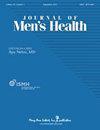酒精使用和年龄对严重创伤患者院前休克指数预测功能和生存结局的影响
IF 0.6
4区 医学
Q4 Medicine
引用次数: 0
摘要
本研究调查了院前休克指数(SI)是否可以预测创伤患者的临床结果,是否有或没有损伤前饮酒,以及这种预测能力是否随年龄而变化。对2015 - 2021年急诊转运至某创伤一级中心的严重创伤患者进行回顾性研究。我们的主要暴露是异常SI,定义为SI≥0.9,住院死亡率和不良功能结局是研究关注的结果。多变量logistic回归分析估计SI对临床结果的影响。我们的研究结果表明,在所有创伤患者中,SI异常与功能不良之间存在显著关联(校正优势比:2.15;95%可信区间:1.41-3.28),在老年组中尤为明显(校正优势比:3.56;95%可信区间:1.55-8.30)。然而,没有发现与住院死亡率相关。重要的是,在不饮酒的严重创伤患者中,无论年龄大小,异常SI与功能不良结果显著相关,并且仅在老年组中与住院死亡率增加相关。因此,异常SI可以显著预测非饮酒严重创伤患者的临床结局,对住院死亡率的预测能力在年龄较大的非饮酒患者中尤为显著。本文章由计算机程序翻译,如有差异,请以英文原文为准。
Modifying effects of alcohol use and age on the predictive performance of prehospital shock index for functional and survival outcomes in severe trauma patients
This study investigated whether the prehospital shock index (SI) could predict clinical outcomes in trauma patients, with or without pre-injury alcohol consumption, and whether this predictive capacity varied by age. We conducted a retrospective study on severe trauma patients transported to a level-1 trauma center by emergency medical services from 2015 to 2021. Our primary exposure was abnormal SI, defined as an SI ≥0.9, with in-hospital mortality and poor functional outcomes as study outcomes of interest. Multivariable logistic regression analysis estimated the effect of SI on clinical outcomes. Our findings indicated a significant association between abnormal SI and poor functional outcomes in all trauma patients (adjusted odds ratio: 2.15; 95%confidence interval: 1.41–3.28), notably pronounced in the older age group (adjusted odds ratio: 3.56; 95% confidence interval: 1.55–8.30). However, no association was found with in-hospital mortality. Importantly, among severe trauma patients who did not consume alcohol, abnormal SI was significantly associated with poor functional outcomes, irrespective of age, and with increased in-hospital mortality exclusively in the older age group. Thus, abnormal SI significantly predicted clinical outcomes in non-alcohol-consuming severe trauma patients, with the predictive power for in-hospital mortality being specifically significant in older, non-alcohol-consuming patients.
求助全文
通过发布文献求助,成功后即可免费获取论文全文。
去求助
来源期刊

Journal of Men's Health
Medicine-Urology
CiteScore
0.70
自引率
28.60%
发文量
153
审稿时长
10 weeks
期刊介绍:
JOMH is an international, peer-reviewed, open access journal. JOMH publishes cutting-edge advances in a wide range of diseases and conditions, including diagnostic procedures, therapeutic management strategies, and innovative clinical research in gender-based biology. It also addresses sexual disparities in health, life expectancy, lifestyle and behaviors and so on. Scientists are encouraged to publish their experimental, theoretical, and descriptive studies and observations in as much detail as possible.
 求助内容:
求助内容: 应助结果提醒方式:
应助结果提醒方式:


